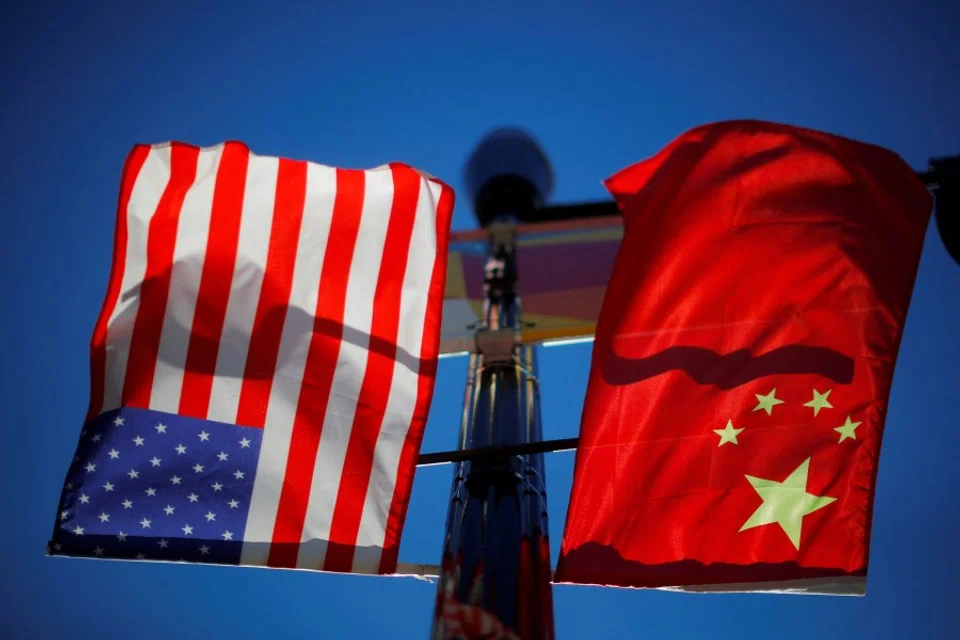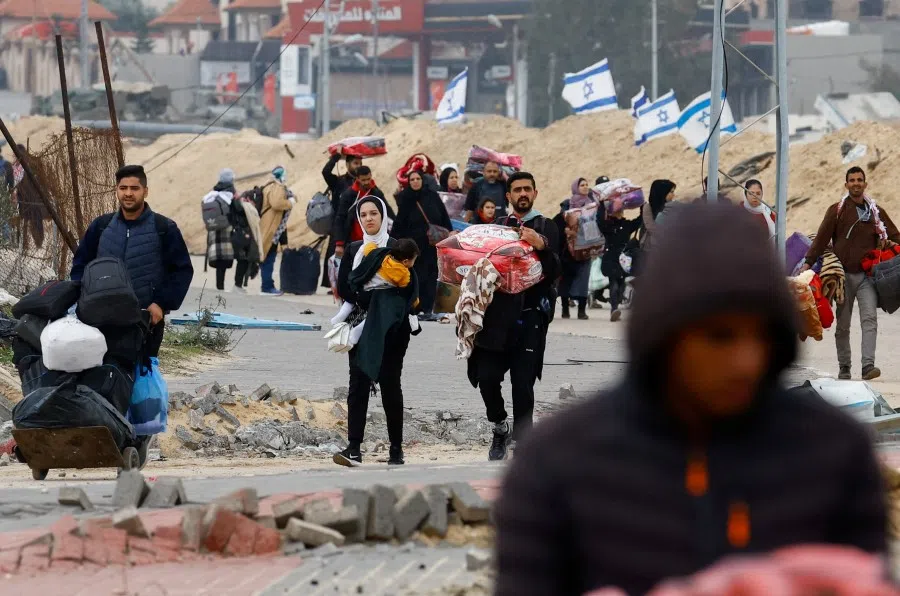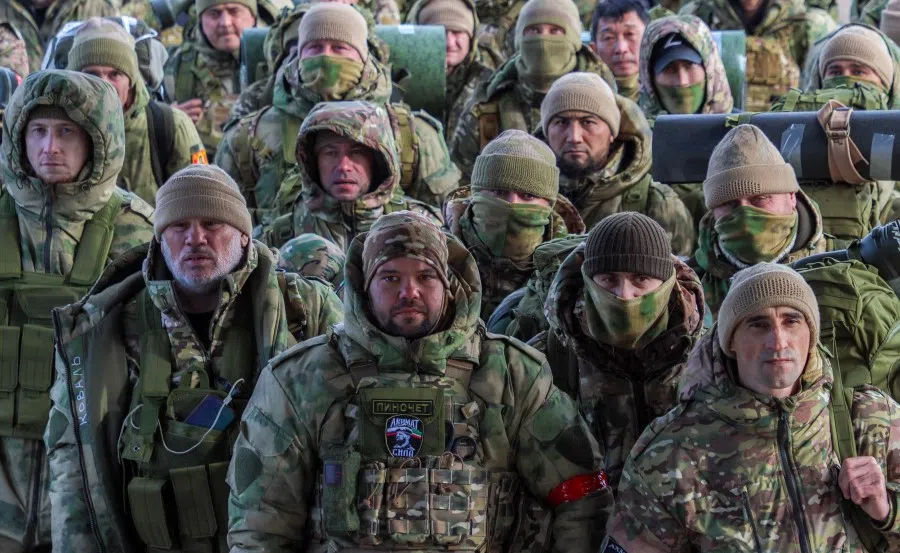How the weakening of major powers affects the world
Chinese academic Xiang Lanxin believes that over the past few years, not only have the relationships between the major powers deteriorated, but these powers are also becoming weaker in different ways. How will such changes impact the world and the powers?

In the face of common threats to humankind, such as climate change or viral pandemics, relations between the major powers are supposed to improve rather than get worse. There was a common understanding during the Cold War that if aliens invaded planet Earth, the US and the USSR would put aside their old grudges and work together to resist them. And yet the Covid pandemic has had precisely the opposite effect on international relations. It did not spur the major powers to join hands. Instead, it has intensified rivalries and confrontations between them.
Living with strategic shocks
It is noteworthy that the world has already experienced three strategic shocks in this century: the international terrorism that struck the US in 2001, the international financial crisis of 2008, and then the post-2020 Covid crisis.
A national security strategy is a plan of action to manage risks and improve national security through the conscious allocation of available resources. What is detrimental to such plans is a "strategic shock", a sudden, disruptive event that forces strategists and policymakers to abandon their original response strategies, whether temporarily or permanently. Strategic shocks have the potential to change the trajectory and stability of national or even global development.
The major powers have all been weakened by the pandemic, and perhaps the greatest danger lies precisely in this tussling among the weak...
Weak tussling with the weak
However, the post-pandemic world is not one where the strong vie with the strong for supremacy, but a security dilemma in which the weak grapple with one another for self-preservation. The major powers have all been weakened by the pandemic, and perhaps the greatest danger lies precisely in this tussling among the weak, as each of the big-time players believes that its own security is compromised due to the other players, and consequently the sense of security is diminished on all sides.

Let us look at the US. It was hit by two strategic shocks in the first decade of this century 一 the September 11 attacks of 2001, and the financial crisis of 2008.
America's strategic shift after September 11 led to the costly failures of the wars in Afghanistan and Iraq, which damaged the good repute of the superpower. To make matters worse, the global financial meltdown exacerbated America's internal discord, breeding extreme populism and leading to Donald Trump being elected as president.
Up until the 6 January 2021 Capitol attack, people had mostly believed that the American system would always possess the resilience to perfect itself. But now, the durability of American democracy itself is in question. As a defeated president sought to overturn the election results, America as the beacon of democracy and of the rule of law collapsed.
In addition, the international community's criticism of the double standards of the West has become mainstream. While the West condemns Russia for war crimes in Ukraine, Israel is not saddled with the same guilt for what it is doing in Gaza. This fundamentally tears down the proposition of an "international rules-based order". The US, once described by the late Secretary of State Madeleine Albright as "the indispensable nation", is now reduced to being "Israel's indispensable nation", and even its allies are unwilling to follow.
That "the West is falling" is more about serious fractures in American society, and the main reason for that is not the rise of China.
China's weaknesses exposed
China's weaknesses are also being exposed. The Chinese assessment that "the East is rising and the West is falling" seems premature. The sloganised "decline of the West" does not fit the facts of America's economic, military and technological strength. That "the West is falling" is more about serious fractures in American society, and the main reason for that is not the rise of China.
The notion that "the East is rising" does not take into account the fragility of the Chinese economic system. Tough administrative and technical measures in the early days of the pandemic did indeed work, but they were not sustainable. China's lifting of controls did not bring about the expected rebound in consumer spending, as it was offset by more negative factors. Unemployment is rising sharply due to weakness in real estate and manufacturing.

The costs of the property sector collapse are absorbed largely by writing off debts on the public books. However, with the declining total population and increased ageing, there is extremely limited latitude for using public spending to prop up the economy. This is a very different situation from the 2008 global financial crisis.
As all the major powers find themselves in a state of relative weakness, rivalry is often hijacked by domestic politics, increasing the likelihood of great power confrontation.
None strong enough to gain an advantage
Russia's failure to conquer Ukraine also demonstrates the former's fundamental weaknesses. Russia's military technology has proved obsolete, and its organisational and command capabilities have declined tremendously. While it still possesses the world's largest nuclear arsenal as well as sufficient essential commodities, its undiversified economic model, heavily reliant on oil and natural gas, can hardly bring about any stable development of manufacturing and consumption, so it will surely not be sustainable in the long run.
To sum up, the major powers of the world currently face a common reality: that the most recent strategic shock does not benefit any one of them, and that none of them is strong enough to secure a decisive, lasting advantage.
Thus, the two basic national policies constantly stressed by the US government are based on erroneous judgements. First, seeing democracy-versus-dictatorship as the primary conflict of the 21st century; and second, the zero-sum logic that the US can and must win.
The warning of the Covid crisis is this: the international community must give top priority to strengthening win-win cooperation.
As all the major powers find themselves in a state of relative weakness, rivalry is often hijacked by domestic politics, increasing the likelihood of great power confrontation. The international situation is thus similar to what the world had seen back in 1914 一 a whole field of tinder, where all it takes is a spark or two to start an uncontrollable fire.





